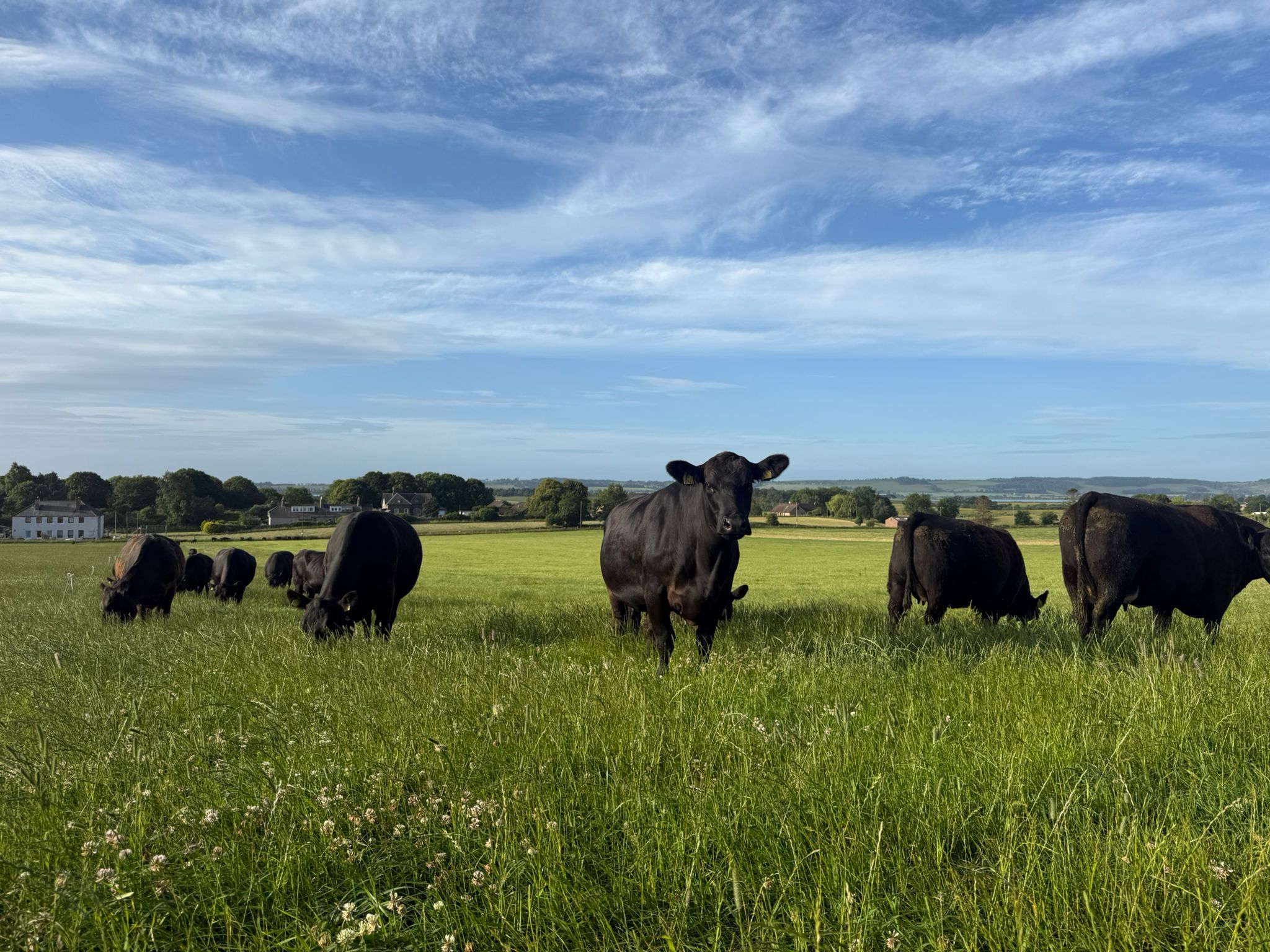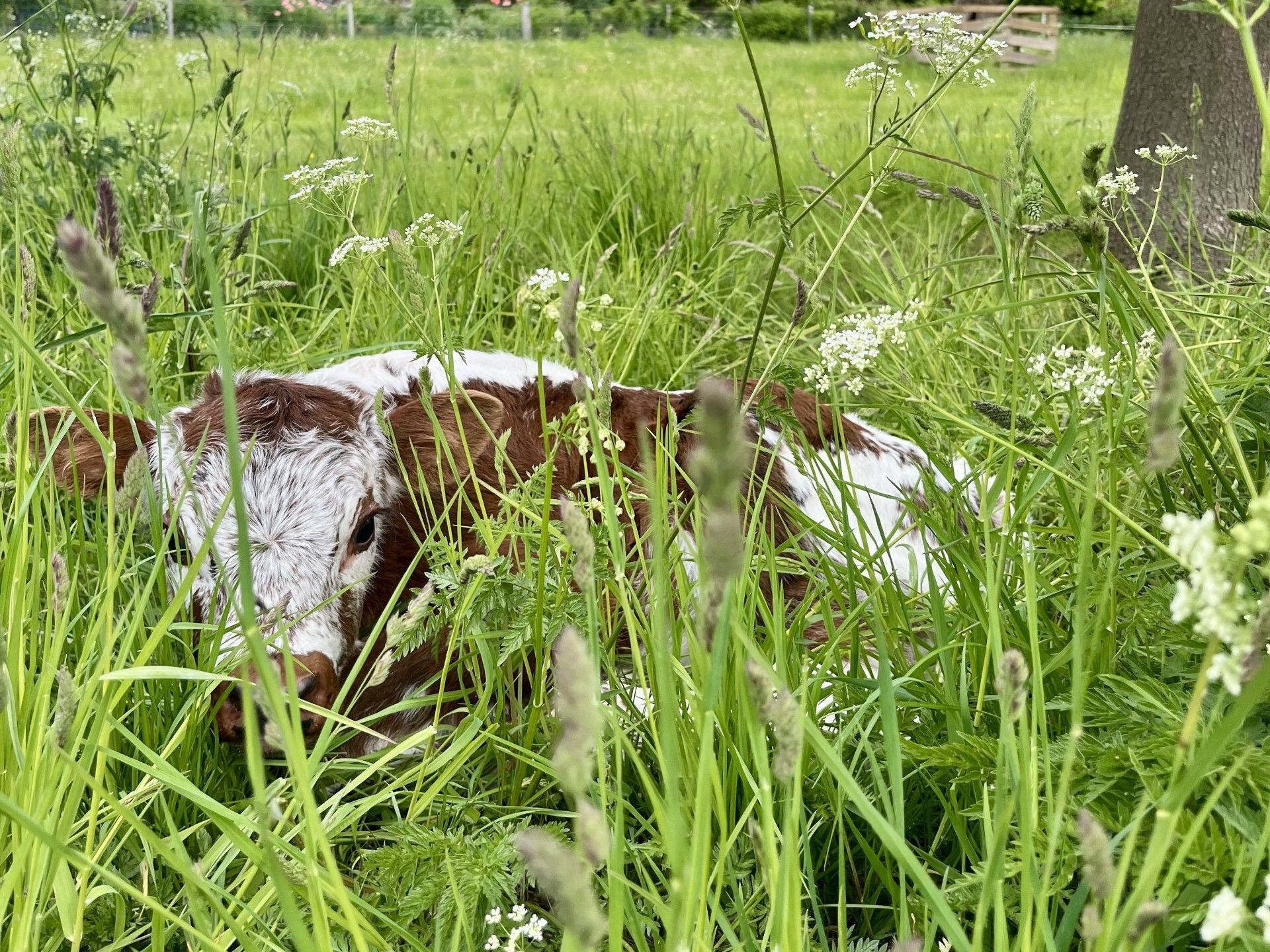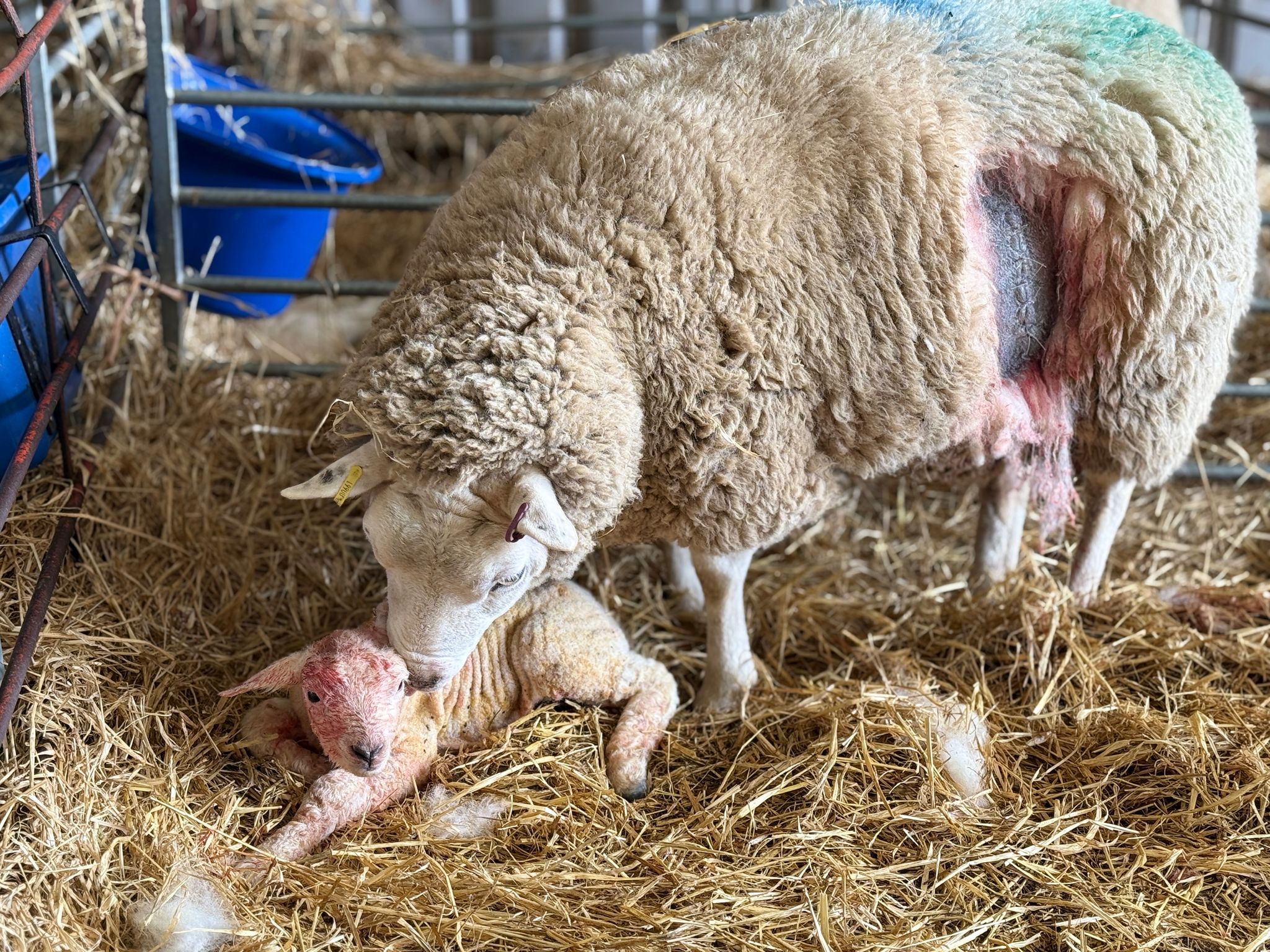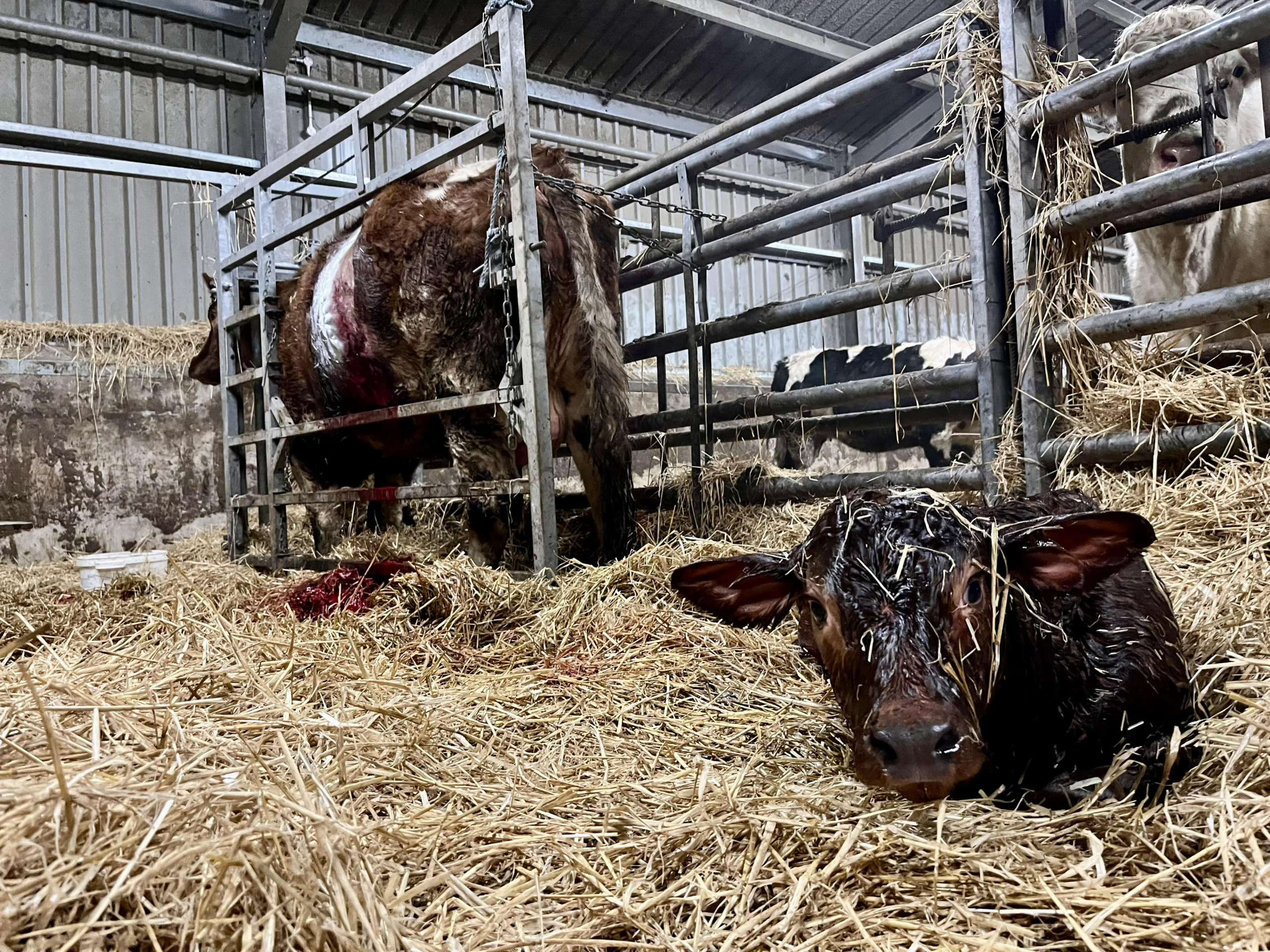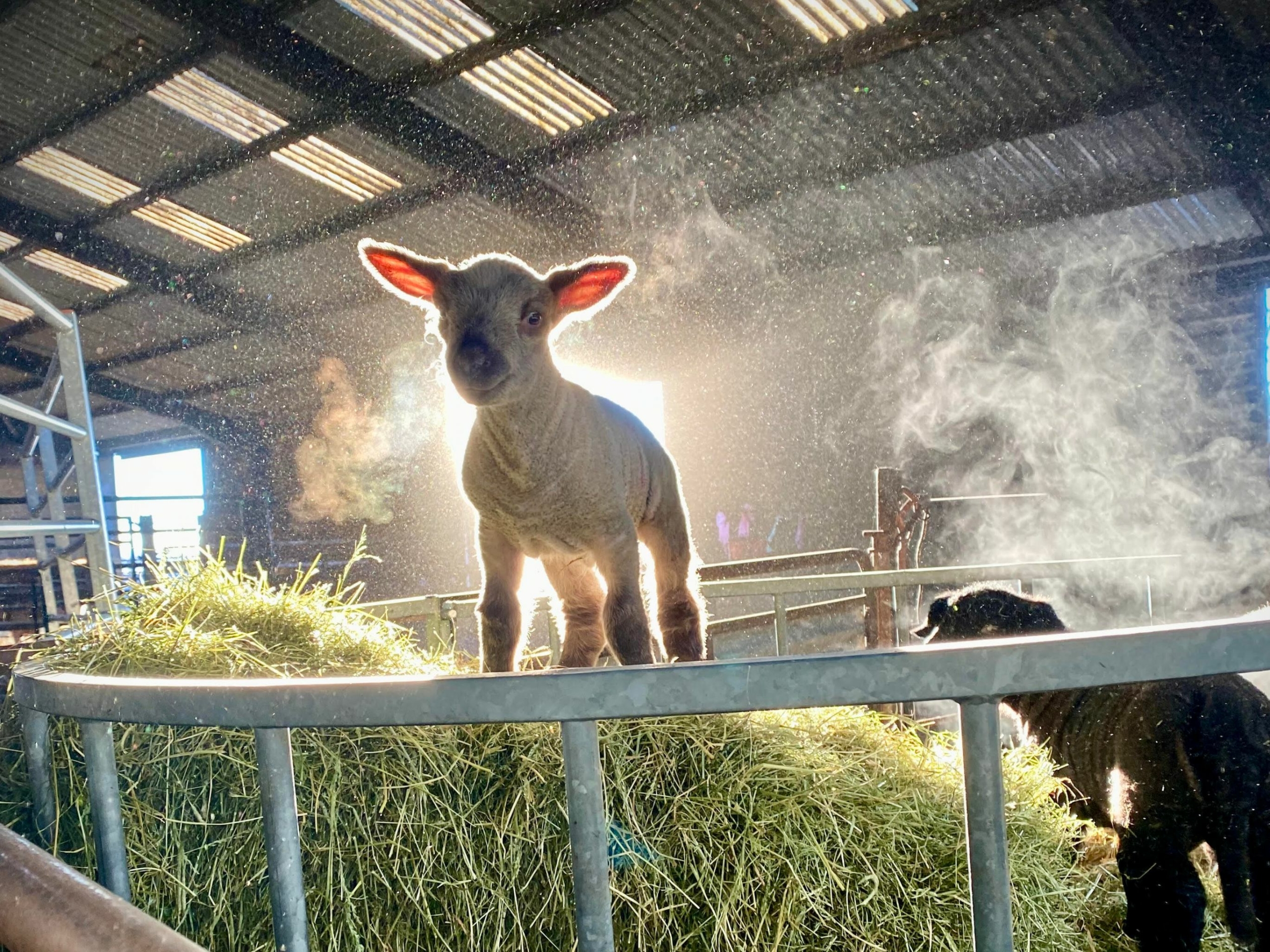Farm Newsletter January 2024
January has seen the continuation of much routine work out and about – still catching up with a few TB tests and health scheme blood samples. Calving has started for some with the accompanying calvings and caesars, as well as the same in a few January lambing Suffolk flocks. A period of more settled weather means that pneumonia seems to have settled down a little. Though as we write the temperature and moisture levels are rising again…
Given the wet back-end we had, fluke is likely to continue to be an issue for stock that are out wintered. January and February are usually the months that are best to employ a dung test to check for eggs – to ensure there is no chronic fluke that require treatment prior to lambing or calving. The test can also be used in housed animals to check that any early treatment has indeed been effective. If submitting dungs please get us 6-8 individually packaged samples per group that we can then bulk together.
February will see Emily Freeman joining the practice as a mixed vet. Emily is originally from the states but studied in Scotland has spent her first years in mixed practice in Aberfeldy. We’re looking forward to welcoming her to the practice and seeing her out and about on farms soon!
Metabolic Profiling Sucker Cows – Farmers Meeting & Blog Article
Over the last few years we have seen increased use of metabolic profiling as a management tool in suckler herds. By blood sampling some cows close to calving it possible to highlight nutritional issues than can lead to slow calving syndrome, metabolic disease and poor colostrum quality amongst other things. By getting these bloods turned round rapidly it still gives us the opportunity to alter the ration to avoid some of the pitfalls around calving time. We have found that in many cases the information gleaned allows small tweaks to be made to the ration that can have a massive benefit around and after calving.
If you would like to learn more about this we are having a farmers meeting on Tuesday 6th February at the Strathmore Golf Centre by Alyth, PH118NZ. The speakers will include Professor Alistair Macrae, who heads up the DHHPS at Edinburgh Vet School, Karen Stewart from SAC and a further speaker to be confirmed. We will also have an update on our new A.I. service. The meeting commences at 12.00 and a light lunch will be provided. Please contact the surgery to reserve a place. There is capacity for 35 which will be allocated on a first come first serve basis. We look forward to seeing you there.
Additionally we have recently published a blog article with more information about metabolic profiling suckler cows and a few interesting case examples we have dealt with, which you can read here on the website.
Medicine Supply: Lambing vaccines
No doubt you will all keenly remember the issues faced last year with supplies of clostridial vaccine, orf vaccine and others. We are concerned that Orf vaccine (Scabigard) will again be in short supply, and whilst we are assured there are no issues with clostridial vaccines like Heptavac or Covexin, the situation can change very quickly with very little resilience built into the supply chain by manufacturers.
Our advice is to ensure you have what you need ordered and in your fridge (we can hold in our fridge here if you prefer), as this will be the only way to ensure you have what you need, should issues arise at the critical time.
Looking for student lambers?
As part of our new prospective vet student mentoring scheme we have contacts with a number of vet school applicants who will be looking for lambing experience. If you are looking for someone to help out this lambing time (likely with little prior experience) please let us know and we can collate a list and put students in contact.
(Re)emerging Diseases – Bluetongue and Schmallenberg
Recent months have seen a concerning trend for re-emergence of viral diseases of cattle and sheep, namely Bluetongue and Shmallenberg.
Bluetongue is currently circulating in SE England, with new cases in the control zone being identified most days. The disease is spread by biting midges, so whilst we here in Angus and Perthshire are at lower risk due to our colder winters and distance from the continent where the virus has been regularly circulating, we are not immune from risk altogether. So vigilance remains important. Signs of disease rarely involve a blue tongue, but occasionally can do. Cattle tend to be the main multipliers of disease but sheep appear to be worse affected. In cattle often all that is seen is a transient rise in temperature. In sheep you may see discharges from eyes, nose and drooling due to mouth ulcers. Lameness and respiratory problems may also be present. Fatalaties of up to 50% can occur also in extreme causes.
The strain of virus circulating currently is BTV-3 which is different from that experienced back in 2008 and there is currently no vaccine available for this strain commercially. Bluetongue is a notifiable disease so if you have concerns about it being present you should notify us or APHA immediately.
Whilst no longer a notifiable disease, Schmallenberg appears to be making a recurrence further south and in Wales. Also spread by midges this disease of cattle and sheep will cause infertility, abortion and birth deformities, often requiring a caesarean to deliver. Whilst it is normal to get a low level of these issues (<1-2%) if you experience higher levels it is worth notifying us for investigation.
Glenshee and Glenisla Sheep Scab Project in to 2024
|
|







